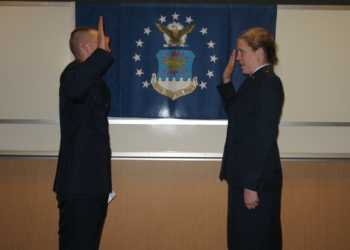If you’ve felt that familiar pit in your stomach at the thought of job hunting during another Permanent Change of Station (PCS) season, you’re not alone. More than 30% of military spouses cite relocation as the primary barrier to maintaining steady employment. These recurring disruptions can hinder career growth, create financial strain and complicate the search for professional fulfillment.
Having worked closely with military spouses, I’ve gained deeper insight into how challenging it can be to balance the demands of military life, family responsibilities and the need to reinvent yourself professionally. While navigating this path may feel overwhelming, there are practical strategies to help overcome common hurdles and take control of your career, no matter where the next PCS takes you.
Understanding job availability around military bases
Job availability near military bases can be limited, especially in rural areas. This scarcity —particularly in specialized fields— makes it challenging to find positions that align with skills and experience, leading many to accept lower-paying or less fulfilling roles.
To enhance your job search, start by researching your new military installation. Job availability varies by the base’s size, mission and location, so understanding the local market is essential. Utilize job boards and networking sites to access current listings and gather insights. Engage with your community, attend virtual job fairs tailored for military families and explore on-base opportunities, including civilian roles and unique positions like liaison officers.
Don’t underestimate the significance of networking. Building relationships within your community can open doors to valuable connections and referrals for job openings. Plus, it’s a great way to cultivate new friendships, turning your job search into an opportunity to create a supportive network.
Leveraging remote work opportunities
Remote work can be a lifeline for military spouses because it offers the flexibility to pursue careers amid relocations while balancing family life. This is advantageous in specialized fields like education and healthcare where virtual roles are increasingly available. As more companies adopt this model, many organizations and resources have emerged to assist military spouses in finding remote job opportunities.
Many staffing agencies specialize in remote positions and have initiatives specifically for military spouses. These recruiters offer tailored support, connecting you with openings that align with your skills, experience and location. Some agencies also streamline the job search and assist with securing employment overseas. For instance, if stationed in Germany, you are able to work remotely as long as you’re on a U.S. base and hold the necessary certifications to practice or teach in the U.S.
Navigating licensure and certification challenges
Frequent relocations can complicate professional licensing, especially in the education field. Proactively addressing licensing needs and staying informed about state regulations before relocating is a good practice. Each state has different certification requirements, and military families typically move before completing necessary coursework and exams. Fortunately, recent legislation has improved options for maintaining or transferring teaching licenses.
License reciprocity allows military spouse teachers to have their certifications recognized in new states without starting over. While these agreements vary, they can ease transitions and enable smooth career continuity. It’s also advisable to contact your new state’s licensing board for accommodations like temporary licenses or expedited reviews.
Bridging employment gaps
Employment gaps can offer a chance to showcase valuable experiences gained during relocations. Position these gaps in your cover letter as dedicated time for growth, learning or supporting your family’s service. Be upfront about your status as a military spouse in your resume summary to provide context for frequent moves or gaps.
Use this time to volunteer, freelance or pursue skill-building opportunities that enrich your resume. Follow a functional or combination resume format to emphasize skills and accomplishments over chronological work history. Be sure to highlight transferable skills like adaptability, resilience, time management and budgeting developed while managing a household during deployments.
Additionally, being open about the unique challenges and dynamic lifestyle of military life can further illustrate the strengths you bring to the table, capturing the attention of recruiters and potential employers.
Approach your next relocation with the mindset that each move is not just a hurdle but an opportunity for growth and reinvention. Your career is defined not by your location but by the determination you bring to each new chapter. With proactive strategies and a supportive network, military spouses can turn these challenges into stepping stones toward a fulfilling professional life. It’s not just about finding a new job — it’s about finding a sense of stability and purpose when everything else feels uncertain.









































